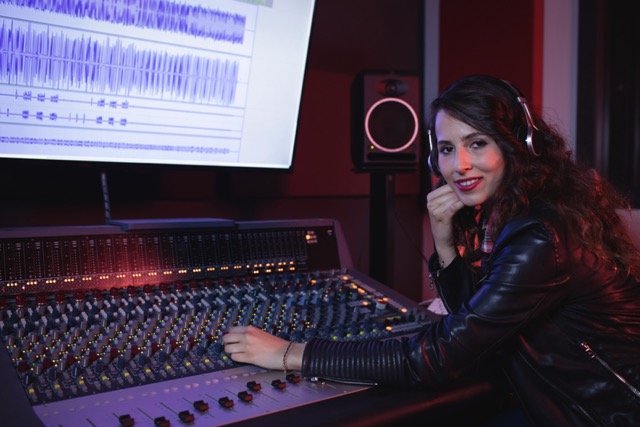


Audiobooks have become a beloved form of entertainment and learning. But what exactly makes them so appealing? Well, imagine being read a bedtime story as a child. That same feeling of comfort and immersion is what audiobooks offer, but now they come with more sophistication. The audiobook format allows people to experience stories and content in a way that fits seamlessly into their daily lives. typesetting, remaining essentially unchanged. It was popularised in the 1960s with the release of Letraset sheets containing Lorem Ipsum passages, and more recently with desktop publishing software like Aldus PageMaker including versions of Lorem Ipsum.
In recent years, the demand for audiobooks has surged. But why are they so popular? For one, they provide the convenience of multitasking. You can listen to an audiobook while driving, cooking, or exercising. Audio books also offer accessibility to individuals with visual impairments or learning disabilities. With an increasing number of platforms offering audio books, such as Audible and Google Play, it’s easier than ever to access a wide range of titles.
Now that we know why audiobooks are popular, let’s dive into how they are produced. Creating an audiobook is much more than just reading a book aloud. It’s a complex process involving careful planning, voice talent, technical equipment, and editing. Think of it like directing a movie—only instead of visuals, you rely solely on sound to create a captivating experience.
Before jumping into the recording booth, you need a solid plan. First, determine the target audience for your audiobook. Are you producing fiction, non-fiction, or something in between? Once you’ve identified your audience, you’ll need to decide on the tone and style of the narration. A children’s book, for example, will need a different approach than a business manual. Planning the structure of the narration and envisioning how you want the final product to sound is key to a successful audio book production.
One of the most important aspects of audiobook production is choosing the right narrator. The voice behind the story can make or break the listener’s experience. Should you hire a professional voice actor, or will you narrate the book yourself? Professional narrators often bring a wealth of experience and can add depth to the characters and content. However, if you’re an author, narrating your book can give it a personal touch that resonates with your audience. Regardless of your choice, the narrator’s tone, pacing, and ability to engage the listener are crucial.
If you’re new to recording, investing in good equipment can be a game-changer in creating a professional-sounding audio book.
Reading from a book isn’t as straightforward as it may seem. To ensure smooth recording sessions, the script must be prepared for narration. This includes breaking the text into manageable chunks, marking pauses for dramatic effect, and ensuring proper pronunciation of difficult words. If you’re narrating the book yourself, practice makes perfect—reading the script multiple times before recording can help you avoid errors and improve pacing.
Now, it’s time to get behind the microphone! Recording an audio book requires focus and attention to detail. The recording environment should be free from background noise and distractions. Many professionals record in soundproof studios to achieve the best quality. During recording, it’s essential to maintain consistency in tone, volume, and pace. This might take multiple sessions to perfect, so patience is key.
Once the recording is complete, the next step is editing. Editing involves removing mistakes, awkward pauses, and any background noise. You’ll also need to adjust the levels of the audio to ensure that everything sounds balanced. After editing comes mastering, where the audio is fine-tuned to meet the standards of professional audiobooks. Mastering ensures that the final product has a consistent sound, whether it’s played on headphones, in the car, or on a home speaker system.
Some audiobooks benefit from adding sound effects and music to enhance the listening experience. For example, a fantasy novel might include subtle sound effects to set the atmosphere, or a self-help book could start each chapter with a calming piece of music. While these elements aren’t necessary for every audio book, they can add a layer of professionalism and make the content more engaging for listeners.
Before releasing your audiobook, it’s crucial to conduct thorough quality control. Listen to the entire audio book to ensure there are no mistakes, inconsistencies, or technical issues. This might involve multiple rounds of listening to catch any small errors. Once you’re confident that the audio book meets high-quality standards, it’s time to finalize the project and prepare it for distribution.
Now that your audiobook is ready, it’s time to share it with the world! There are several platforms where you can distribute your audio book, including Audible, Apple Books, and Google Play. Some platforms offer exclusive contracts, while others allow for wider distribution. Choosing the right platform depends on your goals and the audience you want to reach.
Creating an amazing audiobook is just the first step—you’ll also need to promote it. Use social media, author websites, and email newsletters to generate buzz. Consider offering a free chapter as a teaser to entice potential listeners. Reviews are critical in the world of audiobooks, so encourage listeners to leave feedback, which will help boost the book’s visibility on various platforms.
Producing an audiobook comes with a range of benefits, both for authors and listeners. For authors, it’s an opportunity to reach a wider audience, including those who may not have time to sit down and read. It also opens up additional revenue streams. For listeners, audiobooks provide flexibility and convenience, allowing them to enjoy books during activities where reading a physical book wouldn’t be possible.
Producing an audiobook isn’t without its challenges, and there are a few common pitfalls to watch out for:
Creating an audiobook is a rewarding yet detailed process. From planning and narration to recording and marketing, every step requires care and attention to ensure a professional and captivating final product. Whether you’re producing your first audio book or exploring the process as a listener, understanding the behind-the-scenes work can give you a deeper appreciation for this ever-growing medium.
With more than 30 years of experience in voice acting and audio production, Vox et Veritas – Productions enhances the audio production and voiceover experience using project management solutions and creating a personalized environment that adapts to the specific needs of our customers, including: voice-over, dubbing, voice acting, audio production and audio mixing.